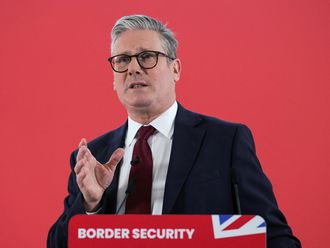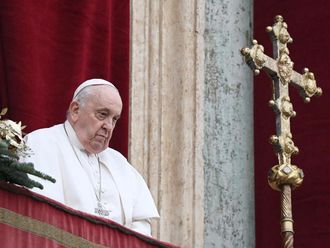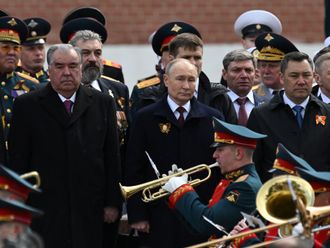Glasgow: So what happens on Friday morning if a simple majority of Scots vote in favour of independence?
Clearly, it would be a result of historic proportions, setting in motion a chain of events that would lead to the unravelling of the political ties between Scotland and the rest of the United Kingdom of England, Wales and Northern Ireland — ties that have been in place since 1707.
The last split in the union came in 1921 when 26 counties in the south of Ireland broke away to become the Irish Free State, later the Republic of Ireland in 1949, leaving six counties behind in Northern Ireland and in the union. Ireland had joined the union in 1801.
Initially, Prime Minister David Cameron would be expected to make a statement, likely in front of 10 Downing Street, to accept the decision of Scots.
He would likely make a statement of regret but comment that the people had spoken and that the outcome must be respected.
Crucially, he will also make a statement to try and allay concerns of the financial markets, sending out a message that Britain stands behind the pound.
Bank of England Governor Mark Carney would also likely issue a statement, creating the aura of stability to stem any potential run on the pound and British financial holdings.
But there would naturally be downward pressure on change rates of the pound against the dollar and euro given the political uncertainty and uncharted waters ahead.
And behind the scenes, there would be the temptation by dissident members of the Conservative Party to put pressure on Cameron to step aside.
First Minister Alex Salmond would also make a statement, saying that he wants to begin the process of negotiating a withdrawal of Scotland from the union. He has set a date of March 26, 2016 for this to happen, with fresh elections in Scotland for its new independent parliament two months later.
Salmond has also said he wants to build “Team Scotland”, using the most senior Scottish politicians and business leaders to negotiate with Westminster, He has said that Gordon Brown, the former Prime minister and advocate now for the ‘no’ team, along with other ‘no’ figures, should join the talks on Scotland’s side.
Above all, Salmond will be at pains to send a message to Scots that now is the time for unity, to come together and build a new nation and try and head the divisions wrought by the most good-natured but divisive referendum campaign.
Queen Elizabeth or Buckingham would likely make a statement too.
The London government has said during the political campaign that there are no contingency plans in place in the event of a ‘yes’ win. That’s the public position. No doubt, in private, senior Whitehall officials have been preparing the ‘what if’ scenarios.
Defence is one area where there will have been considerable thought — especially since Salmond and his party have long sent a message that they want rid of UK nuclear weapons, based at a the Royal Navy submarine base at Faslane on the River Clyde.
After a day of celebration and jubilation, by Monday, expect serious talks to begin in areas like Scotland’s share of the national debt and its continued use of the pound.
And there will talks organised as soon as possible with the European Union and the North Atlantic Treaty Organisation.












